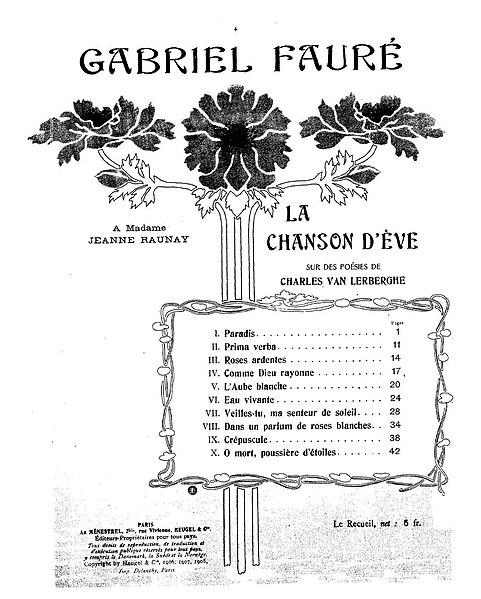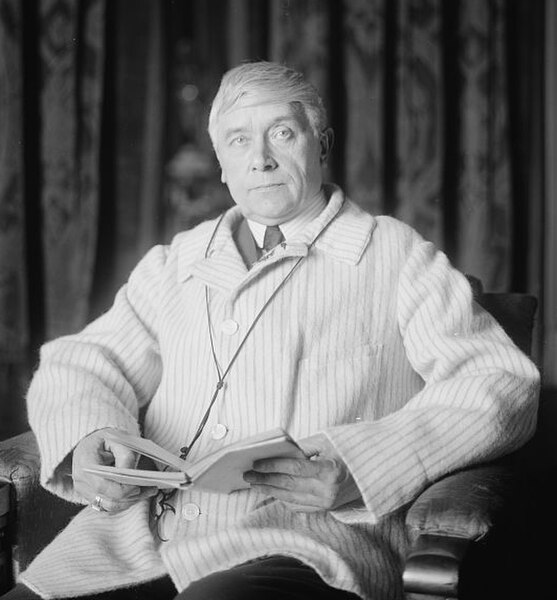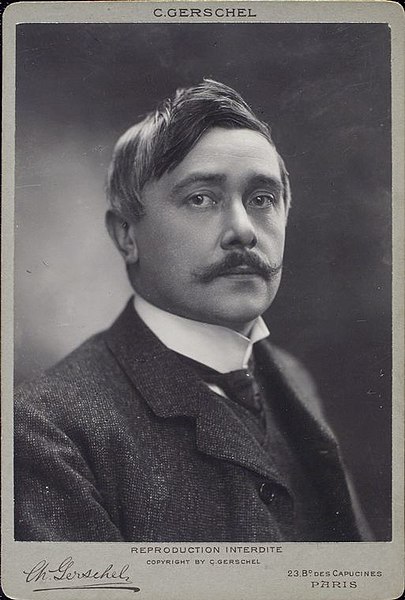Charles van Lerberghe was a Belgian author who wrote in French and was particularly identified with the symbolist movement. The growing atheism and anticlerical stance evident in his later work made it popular among those who challenged establishment norms at the start of the 20th century.
Charles van Lerberghe's photo portrait for Entrevisions, 1898
The woodcut frontispiece designed by Eugène Vibert for the 1923 reprint of Entrevisions
Gabriel Fauré's setting of ten songs from La Chanson d'Ève (1910)
Maurice Polydore Marie Bernard Maeterlinck, also known as Count Maeterlinck from 1932, was a Belgian playwright, poet, and essayist who was Flemish but wrote in French. He was awarded the Nobel Prize in Literature in 1911 "in appreciation of his many-sided literary activities, and especially of his dramatic works, which are distinguished by a wealth of imagination and by a poetic fancy, which reveals, sometimes in the guise of a fairy tale, a deep inspiration, while in a mysterious way they appeal to the readers' own feelings and stimulate their imaginations". The main themes in his work are death and the meaning of life. He was a leading member of La Jeune Belgique group and his plays form an important part of the Symbolist movement. In later life, Maeterlinck faced credible accusations of plagiarism.
Maurice Maeterlinck
Maeterlinck early in his career
Maeterlinck in 1915
Maeterlinck, before 1905







